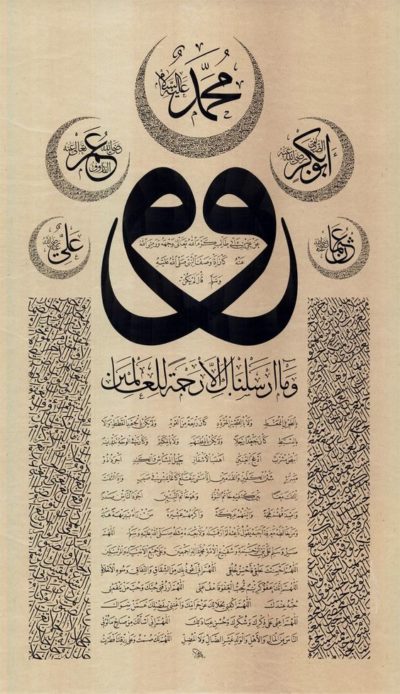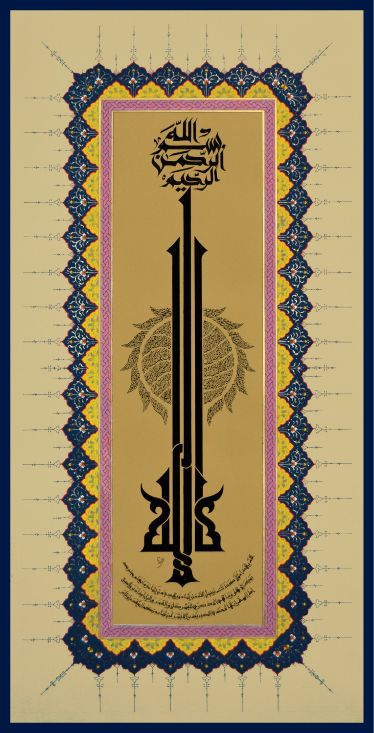Annotated Research Papers



The following are research papers and documents we have added notes to, these files are best opened in Acrobat Reader, not in your browser;
I was invited to annotate this Dissertation submitted for the degree of MSc in Science and Religion at The University of Edinburgh, Department of Divinity, by its author, between the dissertation and our annotations, we would consider this a comprehensive coverage of the deeper subjects on this website, with the exception of a few areas, hence it is one of the best starting points possible to our work. Abstract: The aim of this dissertation is to bring Ibn Arabi’s Sufism into interaction and dialogue with neuroscientific study through looking at the topic of intuition. The two approaches to understanding intuition will be compared in a way where Ibn Arabi’s concept of unveiling (kashf) is defined as a type of intuition concerned on spiritual matters, whereas the type of intuitions addressed by neuroscience is worldly in its nature. Unveiling is the topic around which the whole dissertation builds and due to its divine nature, it is not only related to intuition, but also to spiritual experience. The origin and function of intuition will be discussed through asking the following questions 1.) Who are we in relation to God and the cosmos? 2.) How we acquire knowledge and what true knowledge is and? 3) Can we improve, as well as what is our goal?
DEATH AND THE WORLD OF IMAGINATION: IBN AL-ARABI’S ESCHATOLOGY
In this work you will learn to what extent our scholars considered the universe and what they understood about the subatomic and its relation to human consciousness: Teachings about eschatology or the “return” (al-ma’tad) to God make up the third of the three principles of Sunni Islam, after Divine Unity (al-tawhììd) and prophecy (al-nubuwwa). Those Sufis who discuss eschatology cover a wide variety of topics, two of the most important being the “voluntary return” (al-ruju al-ikhtiyari) and the “compulsory return” (al-ruju al-idfirari)1; the first deals with the path of attaining spiritual perfection in this life, the second with the nature of physical death and bodily resurrection.2 The great Ibn al-Arabi (d. 638/1240) discusses both topics voluminously and sets the stage for all subsequent treatments by Sufis, philosophers, and theologians down to recent times. In the present article an attempt will be made to outline a few of his teachings on the compulsory return and suggest how they fit into his overall world view.
Related Material and Video’s
Is Time Real: (https://youtu.be/PdL8CudJTcs) Ibn Arabi (q) on Time, this is what He (q) meant. Time is a component of reality, the existence of time dilation proves the existence of time as something quantitative, that time in one place can be different than in another, Time on earth flows differently than on the Sun or in a Blackhole, this is not theory but the reality of the place you exist in.
How Does Gravity Warp the Flow of Time?: (https://youtu.be/GKD1vDAPkFQ) Time Dilation is a thing, that is the flow of time on earth is different than in space, than on the Sun or in a black hole, this is because time and space are one thing, we call spacetime, and anything that warps space around it like the Mass of a planet or Sun also changes the rate of time in that area, understand, time is a created thing and is subject to the laws of the universe.
A Star Dragging The Fabric of The Universe: (https://youtu.be/v30oszbPH-k) Severe time dilation, more ways the Universe is messing with reality.
Consciousness As a State of Matter: (https://youtu.be/MjhEtqhUZkY) Consciousness as a state of matter, should be a “no brainer”, all things are made of something and that thing is particles, even our thoughts, while we mainly use this statement to point out this simple reality in our work, Physacissts go further and say it is a state, this is exactly what Imam Ghazali says in His niche of lights, Ibn Arabi in his works and Rumi likewise, all the great scholars understood this reality and either wrote about it or built upon its understanding.
Papers About Ibn Arabi (q) We Hope to Annotate In The Future
- The World of Imagination and Poetic Imagery According to Ibn al-‘Arabi
- On the Cosmology of Dhikr
- Iblis and the Jinn in al-Futuhat al-Makkiyya
- Two Chapters from the Futuhat al-Makkiyya
- A Sufi Approach to Religious Diversity: Ibn al-‘Arabi on the Metaphysics of Revelation
- Time, Space, and the Objectivity of Ethical Norms in the Teachings of Ibn al-‘Arabi
- Ibn ‘Arabi on the Ultimate Model of the Ultimate
- Ibn ‘Arabi’s Doctrine of the Oneness of Being
- Ibn ‘Arabi and His School (Islamic Spirituality: Manifestations)

